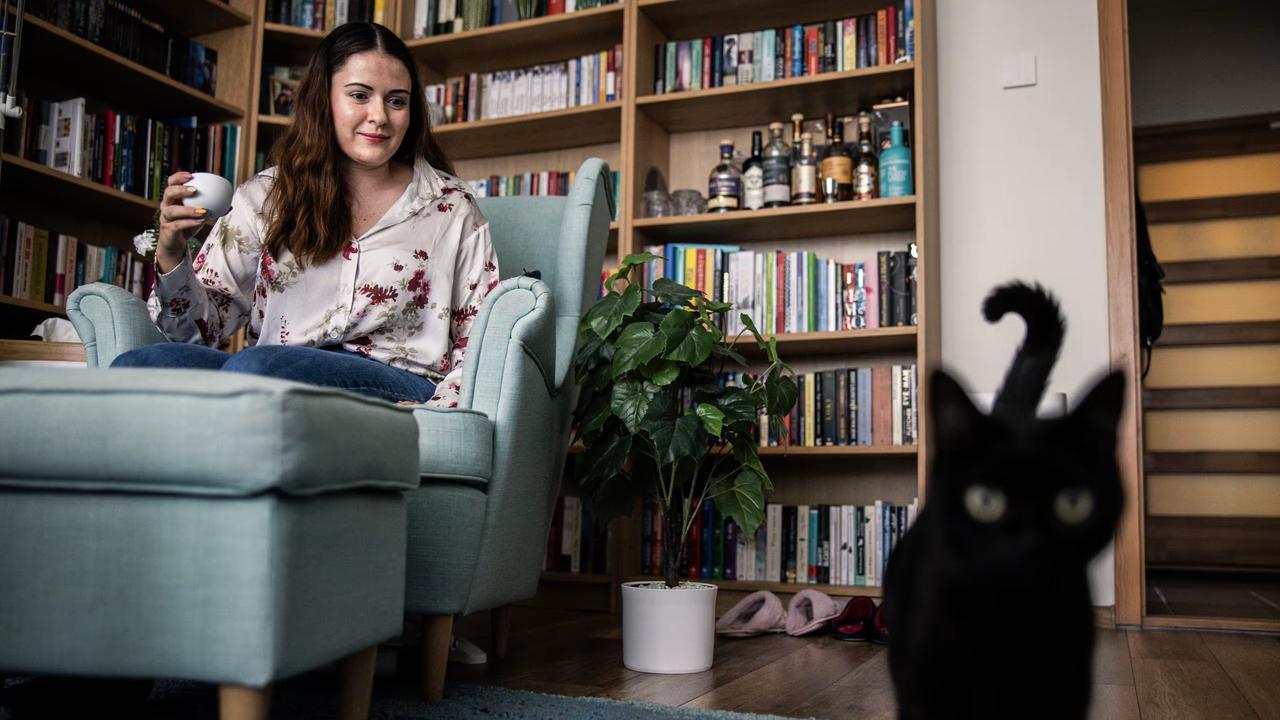Olivia de Havilland: Hollywood mourns one of last legends of Golden Age
Unafraid to challenge industry moguls, the actress blew up the all-controlling studio system with a lawsuit that led to the ‘de Havilland law’
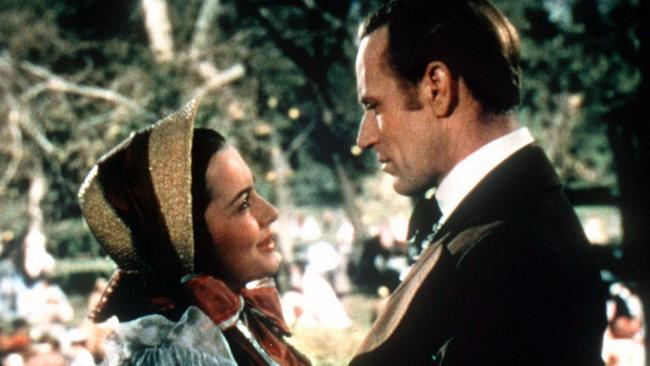
Olivia de Havilland, an Oscar-winning star of Hollywood’s Golden Age and the last surviving major cast member of Gone With the Wind, died Sunday at her home in Paris, at the age of 104.
De Havilland’s death was confirmed by her publicist, Lisa Goldberg, who said the actress died of natural causes.
De Havilland’s career started as films began showing in colour, a time of strict studio system contracts that discovered stars and kept them under tight control.
But de Havilland — who was also known for maintaining an old Hollywood decorum and a long-simmering rivalry with her sister, fellow actress Joan Fontaine — cast herself as a brassy throwback unafraid to challenge industry moguls or offer a choice comment in interviews.
Her career was bookended by high-profile lawsuits, first successfully challenging the controlling studio system of the 1940s and then, at age 102, unsuccessfully fighting television producer Ryan Murphy over his portrayal of her in the miniseries Feud.
De Havilland hadn’t appeared on the big screen in roughly 40 years, but her early roles were in some of the most memorable pictures Hollywood produced in its first three decades: Captain Blood, The Adventures of Robin Hood and Gone With the Wind, in which she played Melanie Hamilton, the sister-in-law and friend of Scarlett O’Hara.
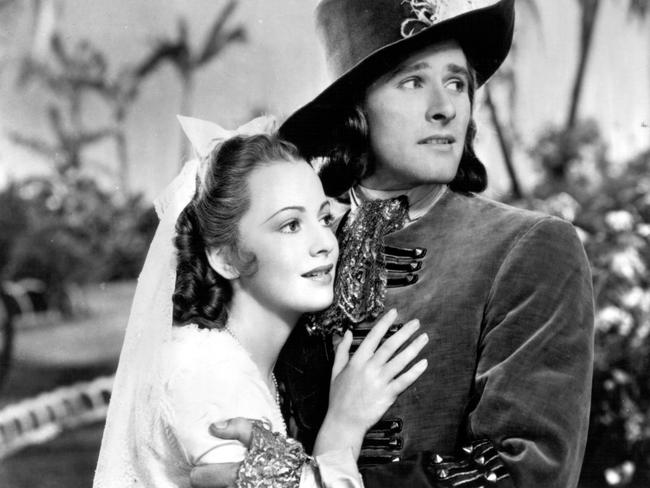
Her frequent collaborations with Robin Hood star Errol Flynn introduced her to audiences, but Gone With the Wind cemented de Havilland’s place in cinematic history. The 1939 Metro-Goldwyn-Mayer adaptation of Margaret Mitchell’s Civil War epic remains the top-grossing movie of all time when ticket sales are adjusted for inflation, according to Box Office Mojo.
De Havilland received her first of five Academy Award nominations for the film, losing to co-star Hattie McDaniel. She would eventually win two Oscars for Best Actress, for To Each His Own in 1947 and The Heiress in 1950.
Roles became more sporadic after those wins. Though her last movie part was in 1979, de Havilland stayed in character.
In recent decades, de Havilland seemed to relish her role as a Golden Age vestige, hosting journalists at the home she kept in Paris since 1953 to gossip about turning down John F. Kennedy for a date, reminisce about introducing Grace Kelly to Prince Rainier III of Monaco or gripe about Gone With the Wind producer David O. Selznick’s decision to run her in the best supporting actress category at the 1940 Academy Awards.
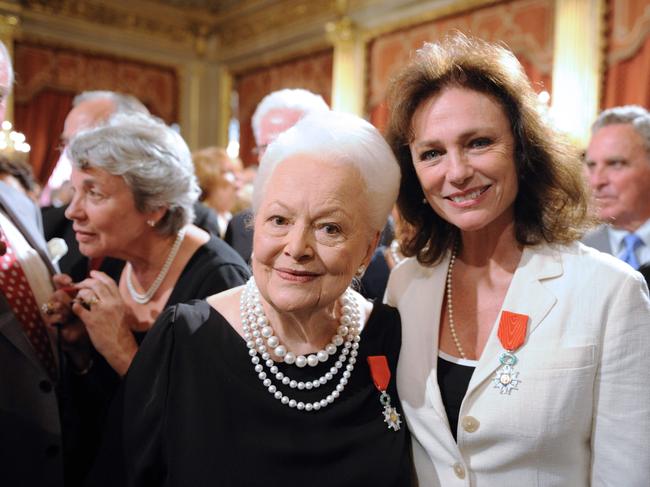
“I had star billing,” she told the Evening Standard newspaper in 2010. “I was not ‘supporting’ at all.”
Born in Tokyo in 1916, de Havilland grew up in the northern California city of Saratoga. While studying at Mills College in Oakland, she performed in a campus production of A Midsummer Night’s Dream that director Max Reinhardt attended. He cast de Havilland in a production of the same play he was directing in Los Angeles, and then again in the 1935 film adaptation.
De Havilland’s performance as Hermia, the Athens woman caught up in a magical swirl of missed connections, led to a seven-year contract at the movie’s studio, Warner Bros. It was the classic old Hollywood narrative: starlet is discovered, signed and sealed. But de Havilland didn’t take to the studio system constraints and demanded more substantial roles than the flighty parts Warner Bros was offering. (The studio had “lent” her to MGM for Gone With the Wind.)
After she was placed on a six-month suspension — and then told the suspension didn’t count toward the time on her contract — de Havilland sued the studio. A judge ruled in her favour, saying that studios could not hold actors to contracts for more than seven calendar years or use such suspensions to extend the agreements.
California Labor Code Section 2855 — or the “de Havilland law”, as it came to be known — chipped away at a studio system that had restrained the actress and her contemporaries. It gave more power to performers and created the ecosystem of agents and managers who negotiate for stars today.
De Havilland’s off-screen drama tantalised gossip columnists for decades. She and Fontaine remain the only two siblings to have both won lead acting Oscars — an accomplishment said to have exacerbated a lifelong rift between them. Fontaine beat de Havilland in the lead actress category in 1942, winning for Alfred Hitchcock’s Suspicion.
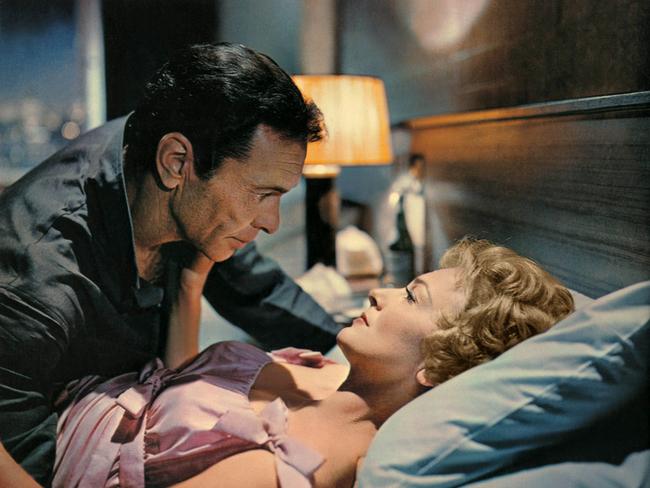
As Hollywood legend has it, Fontaine ignored de Havilland’s congratulations at the ceremony. De Havilland had always had it out for her sister, Fontaine wrote in her 1978 autobiography, No Bed of Roses, asserting she wanted their parents’ attention to herself.
The sisters traded barbs and counter-narratives in the press for decades. When they both attended a celebration of Oscar winners at the 50th anniversary of the Academy of Motion Picture Arts and Sciences, they were seated at opposite sides of the stage.
De Havilland was recently portrayed by Catherine Zeta-Jones in Murphy’s television series, Feud, about the filming of the classic What Ever Happened to Baby Jane? and the rivalry that formed between its two stars, Joan Crawford and Bette Davis.
When Hollywood Reporter magazine asked de Havilland in April 2017 to confirm if the series’ representation of the Crawford-Davis showdown at the 1963 Academy Awards was accurate, the actress didn’t mince words.
“I am opposed to any representation of personages who are no longer alive to judge the accuracy of any incident depicted as involving themselves,” she wrote in an email. “As to the 1963 Oscar ceremony, which took place over half a century ago, I regret to say that I have no memory of it whatsoever and therefore cannot vouch for its accuracy.”
In 2017, de Havilland sued Murphy and Feud network FX over her portrayal on the show as a cutting wisecrack, specifically disputing a scene in which she calls her sister a bitch. An appeals court tossed out the case in 2018, and attempts for the California Supreme Court to hear it were denied.
De Havilland kept pushing, pledging: “We must persevere and speak truth to power.” Her legal team asked the US Supreme Court to hear the case; in January 2019, the court rejected the petition.
The Wall Street Journal

